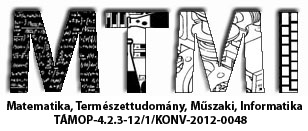The role of PARP-1 and p38 in osteogenic differentiation
Abstract data
Poly(ADP-ribose) polymerase-1 (PARP-1) belongs to the PARP family of proteins involved in cellular processes such as DNA repair, cell death and cell differentiation.
The aim of this project was to investigate the regulatory role of PARP-1 and p38 in osteogenic differentiation, using SAOS and MSCs (mesenchymal stem cells) as models of osteogenic differentiation. The investigation started out with isolation of MSCs from placentas, characterization with flow cytometry and functional analysis by differentiation into three lineages: adipogenic, chondrogenic and osteogenic lineages. In osteogenic differentiation, we observed that knocking out of PARP-1 and pharmacological inhibition of PARP-1 (using PJ34 and olaparib) delay differentiation and influence differentiation-coupled cell death. We also observed increasing p38 phosphorylation throughout the differentiation; and inhibition of p38 delays osteogenic differentiation and increases cell survival.
In conclusion, p38 and PARylation (via PARP-1) may have regulatory roles in osteogenic differentiation.
Támogatók: Támogatók: Az NTP-TDK-14-0007 számú, A Debreceni Egyetem ÁOK TDK tevékenység népszerűsítése helyi konferencia keretében, az NTP-TDK-14-0006 számú, A Debreceni Egyetem Népegészségügyi Karán folyó Tudományos Diákköri kutatások támogatása, NTP-HHTDK-15-0011-es A Debreceni Egyetem ÁOK TDK tevékenység népszerűsítése 2016. évi helyi konferencia keretében, valamint a NTP-HHTDK-15-0057-es számú, A Debreceni Egyetem Népegészségügyi Karán folyó Tudományos Diákköri kutatások támogatása című pályázatokhoz kapcsolódóan az Emberi Erőforrás Támogatáskezelő, az Emberi Erőforrások Minisztériuma, az Oktatáskutató és Fejlesztő Intézet és a Nemzeti Tehetség Program



